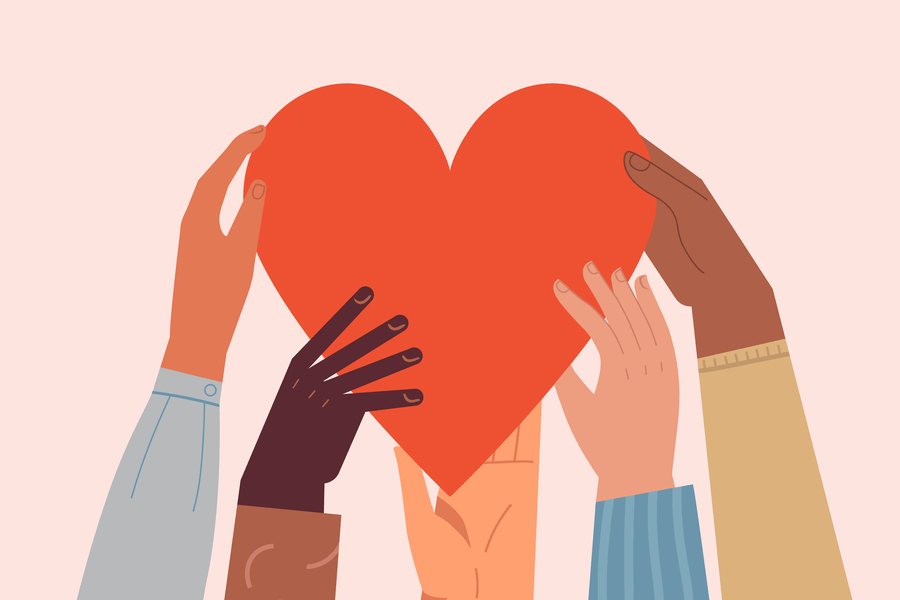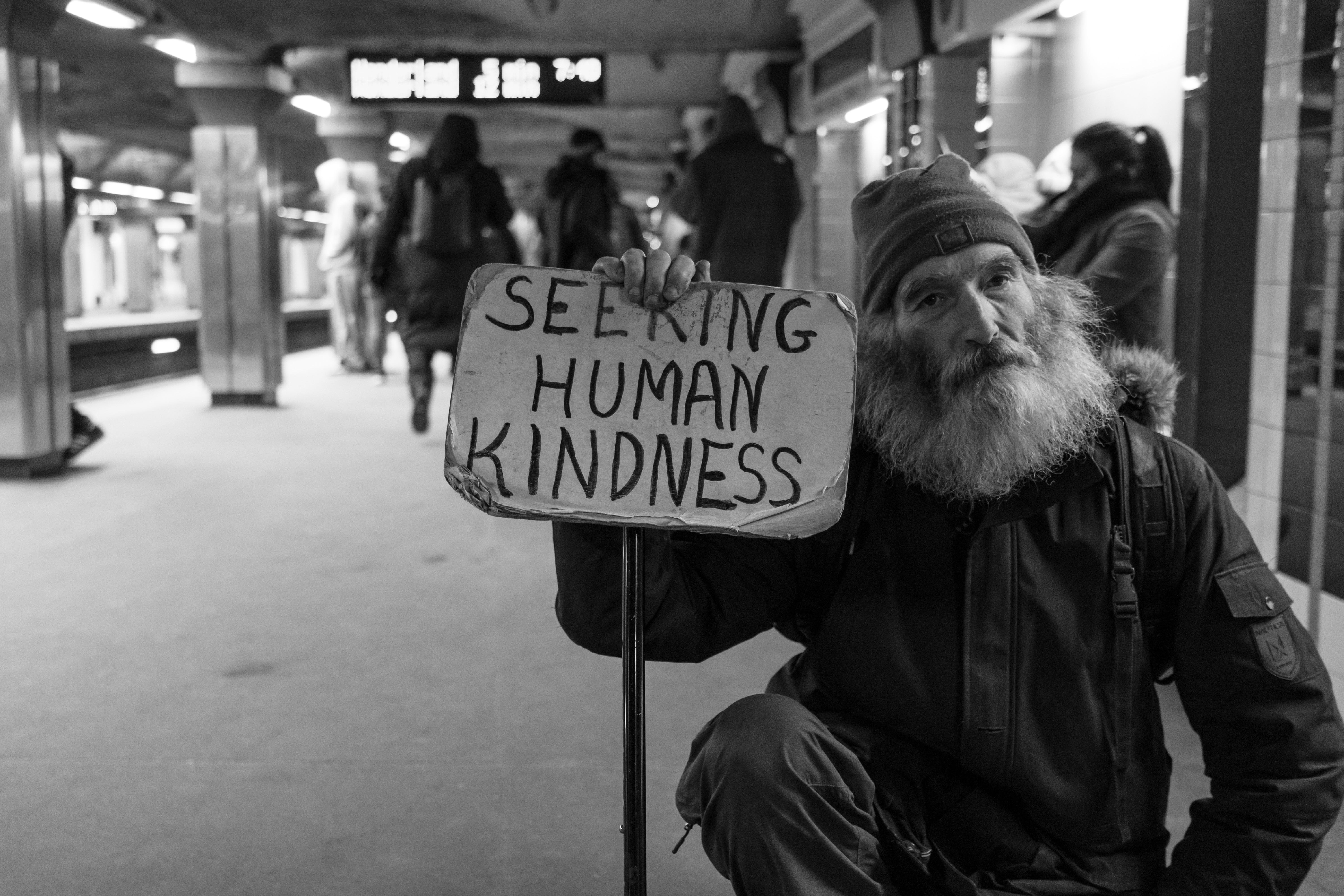This is another video from my YouTube channel, Jack’s World. This video is a thought experiment about enemies, justice, and punishment. Specifically, it asks how we would punish our worst enemies and what we are willing to do to those who have legitimately wronged us. I welcome further comments and discussion on this. Enjoy!
Tag Archives: hatred
Thought Experiment: How Would You Punish Your Worst Enemy?
Filed under Jack's World, Thought Experiment, YouTube
Combating Hate And Politics With Kindness (With Lessons From Mr. Rogers)
We live in a strange time.
I know you could say that about many other periods in history. Even within my own lifetime, I’ve experienced periods that are well beyond the scope of what we think of as normal. The recent upheavals with the COVID-19 pandemic certainly qualify.
But as overwhelming as that was, I still find today’s current state of affairs both unusual and striking. It’s not just that things are changing so fast and we’re all struggling to keep up. That has been a constant for much of the modern world. It’s more that people seemed so overwhelmed, so upset, and so frustrated that they’re forgetting the most basic elements of getting along with fellow human beings.
It’s true. People have always been mean, hateful, and downright cruel to one another. You don’t have to look far into the recent or distant past to see humans committing egregious atrocities on other humans. And I certainly don’t deny there have been worse times in that regard. If you’re alive today, you should consider yourself somewhat lucky. It wasn’t that long ago that such atrocities were both disturbingly common and largely unpunished.
But even with that perspective in mind, I feel like our collective capacity to hate one another has escalated considerably. You could blame politics, going back to the 2016 Presidential Election or even the 2008 Presidential Election. You could also blame the media, pop culture, social trends, religion, and everything in between. I know I’ve criticized those things plenty and will likely continue to do so in the future.
At the end of the day, though, I understand there’s only so much you can do to influence another person. Whether it’s on politics, personal tastes, or personality quirks, we’re all still individuals. We still have our own thoughts, feelings, and biases. That has always been the case. But I can’t recall a time when those elements we all share have been the fuel for so much outright hatred.
It’s easy to notice online, but it’s happening more and more in real life. Real people are committing real acts of violence and hatred towards other people for the simple crime of not agreeing with them on something, be it politics, ideology, or pop culture. It’s getting to a point where the disagreements don’t even have to be about something big like politics or religion. Just being different and existing is now sufficient to invite someone’s hatred.
That is not a tenable state of affairs.
That is not good for individuals, people, or the world in general.
You can blame the internet and political polarization all you want on this, but that only goes so far. At the end of the day, it’s people who still act. It’s people who still speak and send messages through various mediums, be it mundane or hateful. The tools we use don’t create the hate. They may reinforce and spread it. But like it or not, we are the ones that create it. We are the ones that use it as excuses for violence and hate.
I don’t deny that I’ve said dumb things on the internet. I’ve expressed hateful sentiments, both in real life and online. I’m only human and I do regret it. But I also try to counter those inclinations with something stronger. And as I’ve gotten older, I’ve come to realize that doing so is not that difficult. It doesn’t even require some kind of radical rethinking of your current thoughts, beliefs, or biases.
It all comes down to a simple approach.
Be kind.
That’s it. That’s really all you need to counter so much of the hate and mistrust that seems to infect our world at every turn. It may sound simplistic or cliched, but make no mistake. There’s real power in kindness. Most people understand that on some levels. But one man, in particular, dedicated his life to understanding it. You’ve probably heard of him. His name is Fred Rogers, better known to generations of kids as Mr. Rogers from “Mr. Rogers Neighborhood.”
Now, there’s a lot I could say about him and his message. There are no shortage of stories about him that are so heartwarming, they help renew your faith in humanity. But in the spirit of keeping things simple, I’ll just share this clip that I think best explains the true power of kindness.
Please take Mr. Rogers’ message of kindness to heart. In a world as divided as ours, a little kindness goes a long way.
Filed under Current Events, human nature, Jack Fisher's Insights
Shaming Vs. Criticism: Why The Difference Matters
Let’s be honest. It’s very difficult to have honest, civil discourse with anyone these days. I won’t say it’s impossible, but it sure feels that way sometimes. Try expressing any opinion about any issue that’s even mildly controversial. Chances are you won’t spark a civil discussion. You’ll likely trigger a flame war, especially once Godwin’s Law comes into play.
Now, I’m not going to blame all of this on the internet and social media. I don’t deny that it plays a role, but let’s not miss the forest from the trees here. We, the users of these tools, are the ones driving the content. We’re the ones who guide these discussions towards angry, hate-filled outrage. The medium is only secondary.
There are a lot of reasons why civil discourse is so difficult, but I want to highlight just one that has become far more prominent in recent years. It’s an objectively bad trend and one I genuinely believe we need to reverse. It involves this inability to distinguish shaming someone from criticizing them.
It goes like this. Two people connect, either in person or via the internet. They have a disagreement. When there’s criticism, it tends to go like this.
Person A: I hold Opinion X.
Person B: I hold Opinion Y.
Person A: Why do you hold that opinion? I don’t understand how you could.
Person B: Well, it’s because of X, Y, and Z.
Person A: I don’t disagree with Y and Z, but I take issue with X.
Person B: Why is that?
Person A: Well, it goes like this…
Ideally, both people in this exchange get something out of this discourse. Person A offers Person B another point of view. Person B has their opinion challenged and they’re now in a position to defend it. In doing so, they may reaffirm or question their position. They may even convince Person A of the merit of their position.
That’s a healthy level of discourse, guided by fair and civil criticism. There’s certainly a place for that. I even see it on social media from time to time. However, that’s not what makes the headlines. It’s the shaming that usually generates the most noise. Shaming is very different from criticism, both by definition and by practice. At its worst, it goes like this.
Person A: I hold Opinion X.
Person B: I hold Opinion Y.
Person A: What? You’re a horrible human being for holding an opinion like that! You must be a fucking asshole fascist Nazi prick!
Person B: Fuck you! Your opinion is a goddamn atrocity! Only a true fucking asshole fascist Nazi prick would even entertain it! You should be fucking ashamed!
Person A: No, you should be ashamed! You should lose your job, your money, and all manner of sympathy for the rest of your fucking life!
Person B: No, you should be ashamed! You should cry like a baby, get on your knees, and beg everyone like me to forgive you! And you should also lose your job, money, and any semblance of sympathy until the end of time!
I don’t deny that’s an extreme example. I wish I were exaggerating, but I’ve seen stuff like this play out. I’ve seen it in comments section, message boards, Twitter threads, and Facebook posts. It’s not enough to just criticize someone for holding a different opinion. People have to outright shame them to the point where they’re mentally and physically broken.
In some cases, people look for that kind of rhetoric. Some people just love trolling others by posting opinions they know will piss people off and start a flame war. They don’t care about civil discourse. They just care about riling people up. It’s what gives them a cheap thrill.
Those people are trolls. The best thing anyone can do is ignore them.
They’re also in the minority. They may be a vocal minority, but they are the minority. Most people, in my experience, are inclined to be civil. They’ll give people a chance, even if they don’t agree with them. Things just go off the rails when they interpret criticism as shaming. It’s not always intentional, either. Some people just frame their criticism poorly, which sends all the wrong messages.
Whereas criticism is impersonal, shaming evokes some very basic emotions. There’s a tangible, neurobiological process behind it. It’s linked heavily to guilt, an objectively terrible feeling that most people try to avoid at all costs. Shame attempts to impose guilt. While there are some things we should definitely feel guilty about, holding certain opinions is rarely one of them.
Does someone deserve to be shamed for how they voted in the last presidential election?
Does someone deserve to be shamed for believing “Star Wars: The Last Jedi” was a terrible movie?
Does someone deserve to be shamed for thinking certain female characters in media are too sexualized?
Does someone deserve to be shamed for thinking they shouldn’t believe every claim a woman makes about being sexually harassed?
These are difficult, emotionally charged issues. With that kind of complexity, there’s going to be many points of criticism. Some have real merit and they should be discussed. That’s how we learn and make sense of our world and the people in it. Once shame enters the picture, though, the merit tends to vanish.
The problem is that once the shaming starts, it escalates quickly. It doesn’t even need to escalate that much before a person stops listening and gets defensive. At that point, there’s basically no going back. It’s less about understanding someone else’s perspective and all about defending yourself.
That’s not a metaphor, either. Like it or not, people take their opinions seriously. Attacking them with words, even if it’s through a computer screen, still feels like a physical attack on some levels. You’re not just attacking an opinion, anymore. You’re attacking a person. You’re throwing metaphorical punches that have non-metaphorical meanings to those you’re attacking.
With that in mind, look at it from a purely instinctual level. When someone is physically assaulting you, is your first inclination to engage in a reasoned, civil discussion? For most people, it’s not. You go into survival mode and that often involves attacking the attacker.
You throw your punches.
They throw theirs.
They call you a fascist, Nazi-loving bully.
You call them a worse fascist, Nazi-loving bully.
There’s no logic or reason to it. Once emotions override everything, criticism becomes a moot point. It’s all about hitting back to defend yourself. It’s not about being right. It’s about survival, at least from your brain’s perspective.
If there’s one silver lining, it’s that people get burned out quickly on this kind of discourse. You can only hear two sides call each other fascist for so long before the rhetoric loses its impact. It also gets boring. It takes too much energy to sustain that kind of hatred towards someone you don’t know. Most people who aren’t trolls have better things to do with their time.
As I write this, I understand that we live in contentious times. I see the same heated debates online and in person as everyone else. I know that civil discourse is a scant and precious commodity at the moment. That’s exactly why we should make the effort, regardless of what opinions we hold.
Once we stop shaming each other for daring to think differently, we’ll realize just how much we have in common. We don’t have to agree with one another. We don’t even have to like one another. We can and should still be civil with one another. That’s the only way we’ll make any real progress.
When Fighting For Equality Is Counterproductive
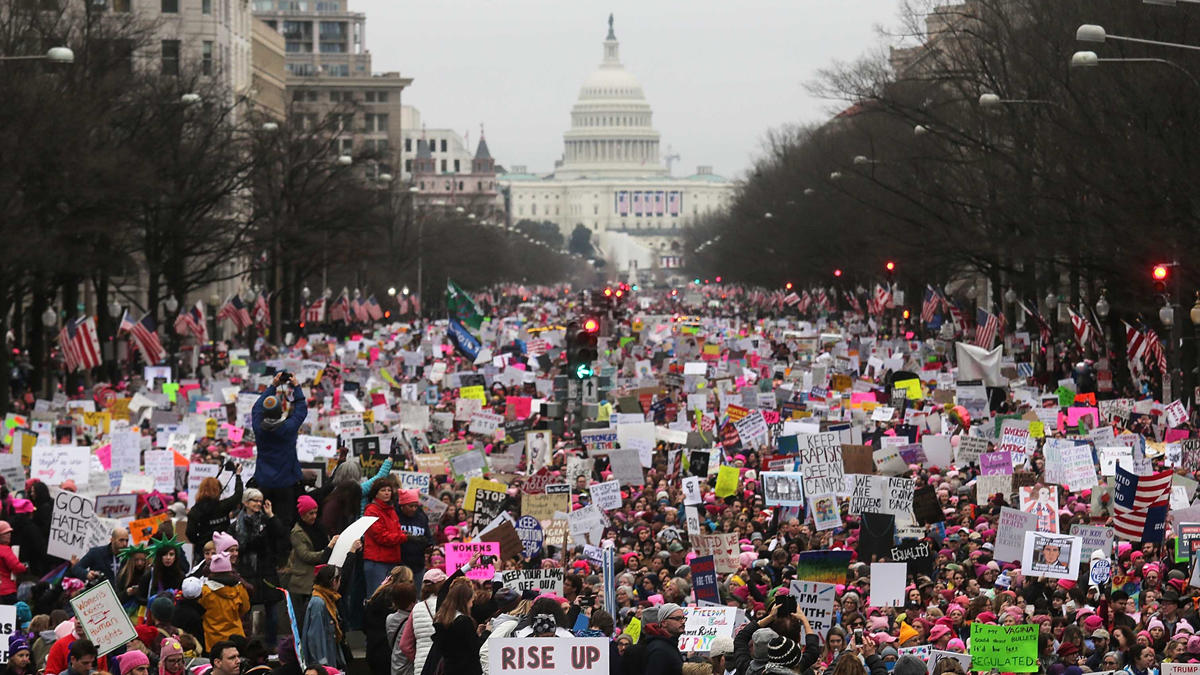
Have you ever met someone who is just inherently better at something than you? No matter how hard you practice, you just can’t reach their level. They’re still better. It’s an unfortunate fact of life that we all have to learn at some point, but I worry that some people are trying to put that lesson off while others are trying to outright subvert it.
In general, the intent is noble. The world is full of horrendous inequality. There’s wealth inequality, gender inequality, and even inequality in representation within superhero comics. While we have done a lot in the century to reduce inequality, there’s still plenty of room for improvement.

For the most part, people support those efforts. You won’t find many people who aren’t enjoying a fat inheritance that will say outright they want less equality. Segregation, rigid caste systems, and the dehumanization of minorities is largely frowned upon for reasons I hope I don’t have to recount.
Seeking a more equal and just world is a perfectly respectable endeavor. For the most part, I support those efforts. I believe we should work towards a more egalitarian society where the rights and dignity of individuals are protected and respected. Even though we have laws in place, as well as principles espoused at an international level, we could do a better job at enforcing them.
With all that said, there’s still one burning question that I feel is worth answering. It relates directly to the first question I asked earlier and the harsh lesson it teaches us.
How much equality is actually possible?
It’s one of those questions that’s impossible to answer, but evokes many heated debates, regardless of politics or affiliation. Whether it’s economic issues or gender issues, these debates often devolve into one side calling the other a fascist or a bully. Every now and then, there’s some meaningful discourse and even a few novel ideas. In the era of outrage culture, though, this seems to be getting increasingly rare.
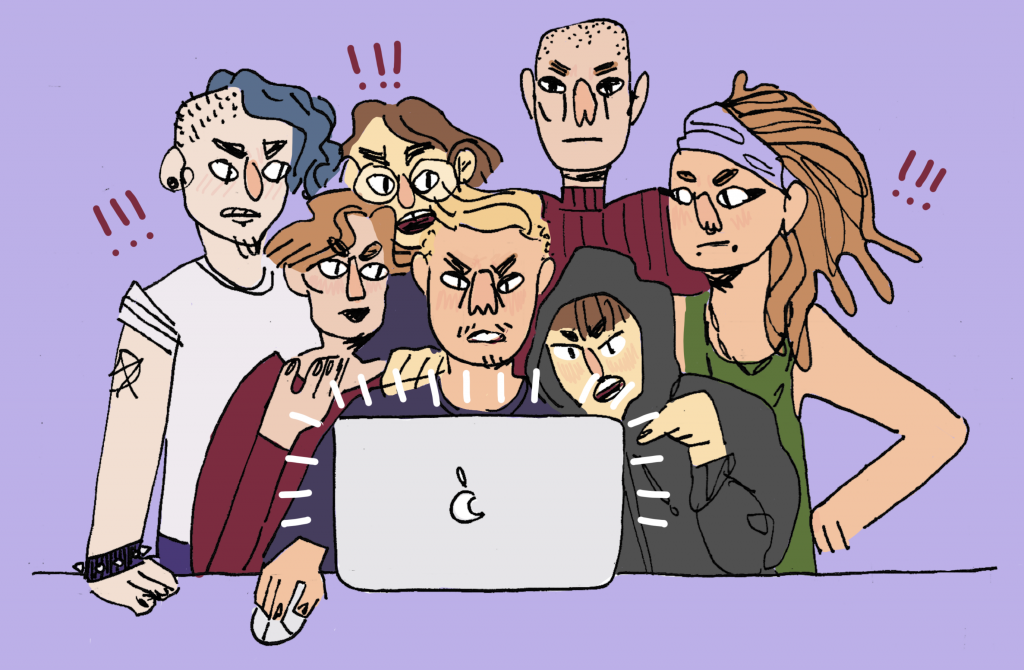
We’re at a point where even the slightest hint of inequality is deemed untenable.
Are there too few female superheroes in comic books? That’s not equal!
Are there too few people of color being cast in major move roles? That’s not equal!
Are there too few minorities in Forbes list of 100 richest people? That’s not equal!
Are there too few women in fields of science, medicine, and technology? That’s not equal!
Are there too few dating options for people who are disabled or obese? That’s not equal!
Are there too many beautiful women who only hook up with assholes? That’s not equal!
Are there too many handsome men who only date supermodels? That’s not equal!
I could list dozens of other situations that are grossly unequal. I purposefully omitted big ones like the gender wage gap and racial disparity in criminal arrests because these are cases that best highlight the logistics of promoting equality versus the ideals surrounding equality.
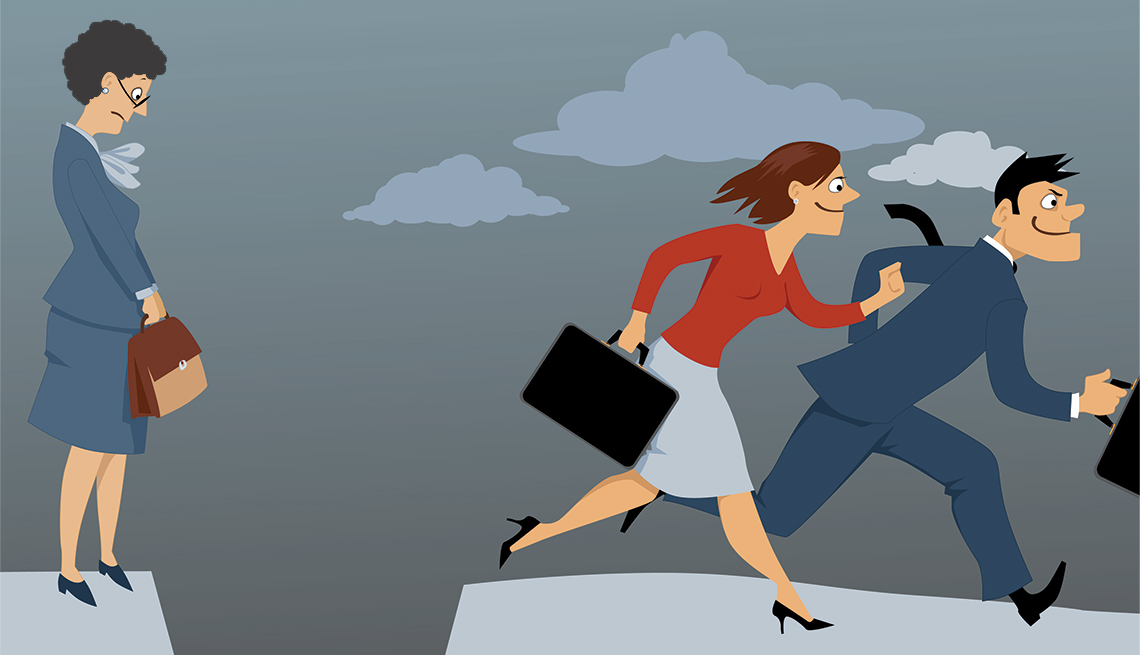
By law, it’s illegal to pay someone less because of their gender and has been since 1963. The courts have also historically ruled that it’s illegal to selectively enforce laws on the basis of race. These precedents are decades old and on the books for any lawyer to enforce. Why is there still so much inequality?
There are many reasons for that and I’m not smart enough to make sense of all of them. However, I think the mechanisms that continue to drive inequality can be best summed up by a terrible Jennifer Aniston movie from 2006 called “The Break-Up.” Yes, I know that sounds ridiculously random. I promise there’s a reason behind it and it relates to the underlying concept of equality.
In that movie, a couple is going through some nasty conflicts that are only mildly amusing at best. However, the most revealing quote from the movie, which also happens to be most relevant to this topic, is when Jennifer Aniston’s character tells her significant other this.
“I want you to WANT to do the dishes.”
It is, without question, an absurd statement that makes an unreasonable demand on someone she claims to love. It nicely sums up the entire conflict of the movie and effectively spoils the ending. These two are not in a functional relationship. In fact, if they had actually stayed together at the end, it would have been unhealthy for both of them.

That’s not because the relationship was unequal. It’s because both Jennifer Aniston’s character and Vince Vaughn’s character had very different ideas of what was “fair.” I put fair in quotes because it was an empty concept in this context. They didn’t just want equality in terms of roles, responsibilities, and privileges. They wanted equality of outcome and consequences.
That’s not just an unreasonable expectation. It’s a catalyst for outrage. It’s one thing to fight for legal equal protection, but fighting for equal outcomes and consequences is a losing battle. You’re better off trying to divert Niagara Falls by spitting at it. On top of that, it sets people up for disappointment and outrage.
The all-female remake of “Ghostbusters” was never going to make as much money or be as beloved as the original.
The push for less sexy video game characters was never going to improve gender relations in the gaming community.
Attempts to replace Iron Man with a 15-year-old black girl from Chicago was never going last for very long.
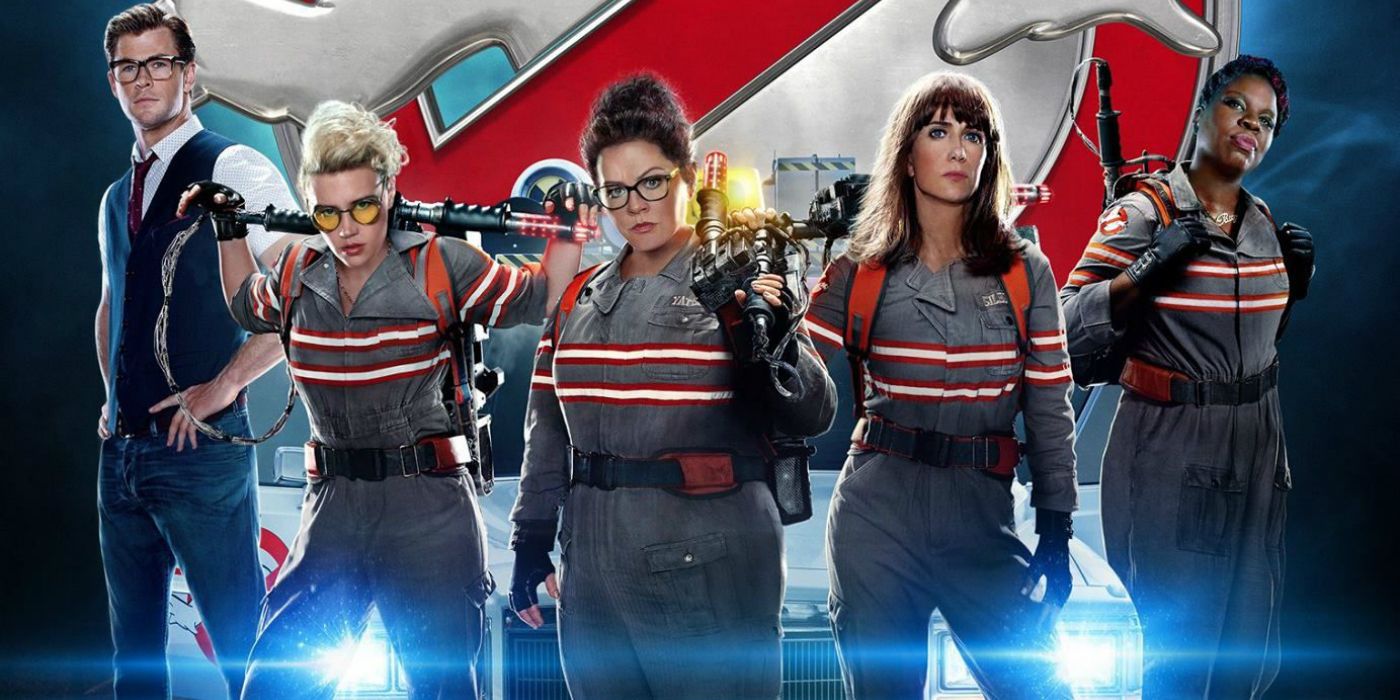
All these outcomes were fairly predictable, but still generated incredible outrage with people crying discrimination, racism, sexism, and every other kind of insult in keeping with Godwin’s Law. As a result, those still fighting for what they see as “fair” have to step up their game and push harder. That often means becoming more extreme in rhetoric, emotions, and tactics.
Since things like reality, facts, and basic human nature often get lost in extremes, it makes sense that we have such radical segments of the political and social spectrum. I believe most of them genuinely believe they’re fighting for greater equality and greater fairness, as they see it. A few are probably just genuine assholes looking for excuses to be bigger assholes, but they’re the minority.
To some extent, I can appreciate the intent and effort of those fighting for more equality. The world is still imperfect and humanity, as a whole, is exceedingly imperfect. Our collective history is riddled with injustices and atrocities of staggering proportions. We should strive to be better, as individuals and as a civilization. A part of that effort pursuing a society of equal rights, privileges, and responsibilities.

At the same time, some levels of inequality are unavoidable. Sometimes, it’s due to simple demographics. Sometimes, it’s due to the basic laws of biodiversity or sexual dimorphism. Sometimes, there are individuals that are just inherently better at you than something. I could practice basketball every hour of every day for the rest of my life. I’ll still never be as good as LeBron James.
That kind of equality is just not possible in the real world. Until we all become shape-shifting cyborgs, we can only be equal to a certain extent. Many sincere people disagree on where that extent is and where it should apply.
However, there’s a real danger in trying to achieve the impossible and getting upset whenever it’s not achieved. It doesn’t just suck up energy, ideas, and resources from other meaningful endeavors. It fosters hostility towards others and their ideas. In the same way Jennifer Aniston’s character couldn’t make her boyfriend want to do the dishes, we can’t make someone else want our idea of equality.
Remembering Martin Luther King Jr. And The TRUE Meaning Of Equality

Usually on a holiday, be it a major one that kids celebrate because it means no school or a more contrived one meant to sell greeting cards, I go out of my way to acknowledge it on this blog. I even try to channel the spirit of the holiday, if only to make the day feel like more than just something people mark on a calendar.
With today being Martin Luther King Jr. Day, though, I feel compelled to do more than just acknowledge it or the spirit behind it. In fact, I feel as though the spirit of this holiday is more critical now in 2018 than it has been in year’s past. When I look at the world today and all the ongoing conflicts unfolding before my eyes, I believe that the message and spirit of Dr. King is more relevant than ever.
Most people know who Martin Luther King Jr. is and why he’s such a prominent figure in modern history. He has a holiday named after him for a very good reason. He was both a leader and an icon of a very volatile time in American history. He was also a strong man of faith, one who actually took the non-violent teachings of Jesus Christ to heart. That’s an increasingly radical concept these days.

What Dr. King accomplished was remarkable, especially in the face of so much heated opposition. However, it’s how he accomplished it that really sets him apart and makes him worthy of celebrating. Like I said before, he believed in non-violence and he took them very seriously.
According to the King Center, Martin Luther King Jr. had a very specific way of utilizing non-violence to achieve the goals he sought. In his book, “Stride Towards Freedom,” he organized them into six principles.
- Principle #1: Nonviolence is a way of life for courageous people.
- Principle #2: Nonviolence seeks to win friendship and understanding.
- Principle #3: Nonviolence seeks to defeat injustice not people.
- Principle #4: Nonviolence holds that suffering can educate and transform.
- Principle #5: Nonviolence chooses love instead of hate.
- Principle #6: Nonviolence believes that the universe is on the side of justice.
Take a moment, if you can, to appreciate the sheer heart and idealism espoused in these principles. Remember, Dr. King fought against some of the most extreme racism anyone can imagine. Take the most offensive, vile messages you’ve seen on social media or 4chan. Then, create a society around them and give it political power. That’s what Dr. King was up against.

However, he didn’t seek to defeat that racism through the kind of outrage, protests, and meme wars that seem to dominate the overall rhetoric today. He took these principles of non-violence and employed them. He did this, despite often being threatened with violence.
He still stuck to those principles, though. He believed that his message would transcend the violence. The fact that he now has a holiday named after him and is one of the most celebrated figures in modern history proves that his beliefs were vindicated.
What stood out with these principles and how Dr. King practiced them literally showed the power of these beliefs. Rather than pick fights with racists, he sought understanding. Rather than voice outrage, he chose to voice love. This is readily apparent in his famous “I have a dream” speech that still resonates to this day. Even in 2018, it still gives people chills for all the right reasons.
Read or listen to that speech and then contrast that with how people today are trying to fight racism, sexism, and bigotry. Think about the misguided movements from both sides of the political spectrum that operated under very different principles. Then, look at the results or lack thereof.
This is where the power of Dr. King’s principles really shows. It also reveals just how much we’ve forgotten or negated what it means to seek equality or combat bigotry. It’s articulated in the second and the fifth principle of non-violence. He sought understanding and love over retribution and hate.
This matters today because society today is more and more driven by a toxic mix of outrage culture and attention-driven economics. We’re seeing this in increasingly petty arguments within feminism, racial politics, and political groups. These days, it’s become less about actual progress and more about winning debates.

As a result, our entire understanding of justice and equality has become twisted. It’s no longer a matter of pursuing the equal treatment under the law that Martin Luther King Jr. fought and eventually died for. It’s about fighting and hating the real and perceived source of that inequality.
We see it among both feminists and men’s rights activists who seek to demonize one another rather than promote gender equality.
We see it among racial and ethnic groups who seek to elevate themselves at the direct cost of another.
We see it among religious groups, sometimes within the same religion, who seek to dominate rather than cooperate.
These are antithetical to the message that Dr. King espoused. In his preaching and protests, he didn’t demand that one group be elevated over the other. He didn’t demand that oppressors suffer the same indignity as the oppressed to balance the scales of justice. He understood, probably better than anyone alive today, that fighting injustice with injustice still leaves us with the same amount of injustice.
“Injustice anywhere is a threat to justice everywhere.”
It’s not always the kind of obvious legal injustice that was so prevalent in Dr. King’s time. Today, injustice takes many forms. There are those who seek to actively punish those for daring to express thoughts that counter a popular movement that claims to seek justice. There are those who seek to shame others for not being affiliated with a movement or not going far enough.
We’re getting into dangerous levels of tribalism in that it’s becoming less about pursuing justice and more about being part of a shared agenda. Thanks to the internet, that’s becoming distressingly easy and the broader ideals of Dr. King’s principles seem to get lost under the weight of all the outrage.

In his tireless efforts, Martin Luther King Jr. fought for equality of treatment. He didn’t seek to elevate one group over the other, exchanging one form of oppression for another. He didn’t seek to destroy his opponents. He sought to make them friends and allies. He fought their hatred with love and their ignorance with wisdom. It wasn’t about winning a debate. It was about actually pursuing the spirit of equality.
That, more than anything, is the message we should heed in 2018. Pursuing equality doesn’t mean subduing opponents. It means standing with them on the same level, embracing what us similar and unique. We can never share the same outcomes in life, but we can share in the struggles.
In the end, pursuing equality requires a great deal of humility, as well as a genuine faith that people will embrace justice if you give them a chance. We’re giving ourselves fewer and fewer chances these days. In the spirit of Martin Luther King Jr. and everything he stood for, we would all be wise to give ourselves those changes moving forward.
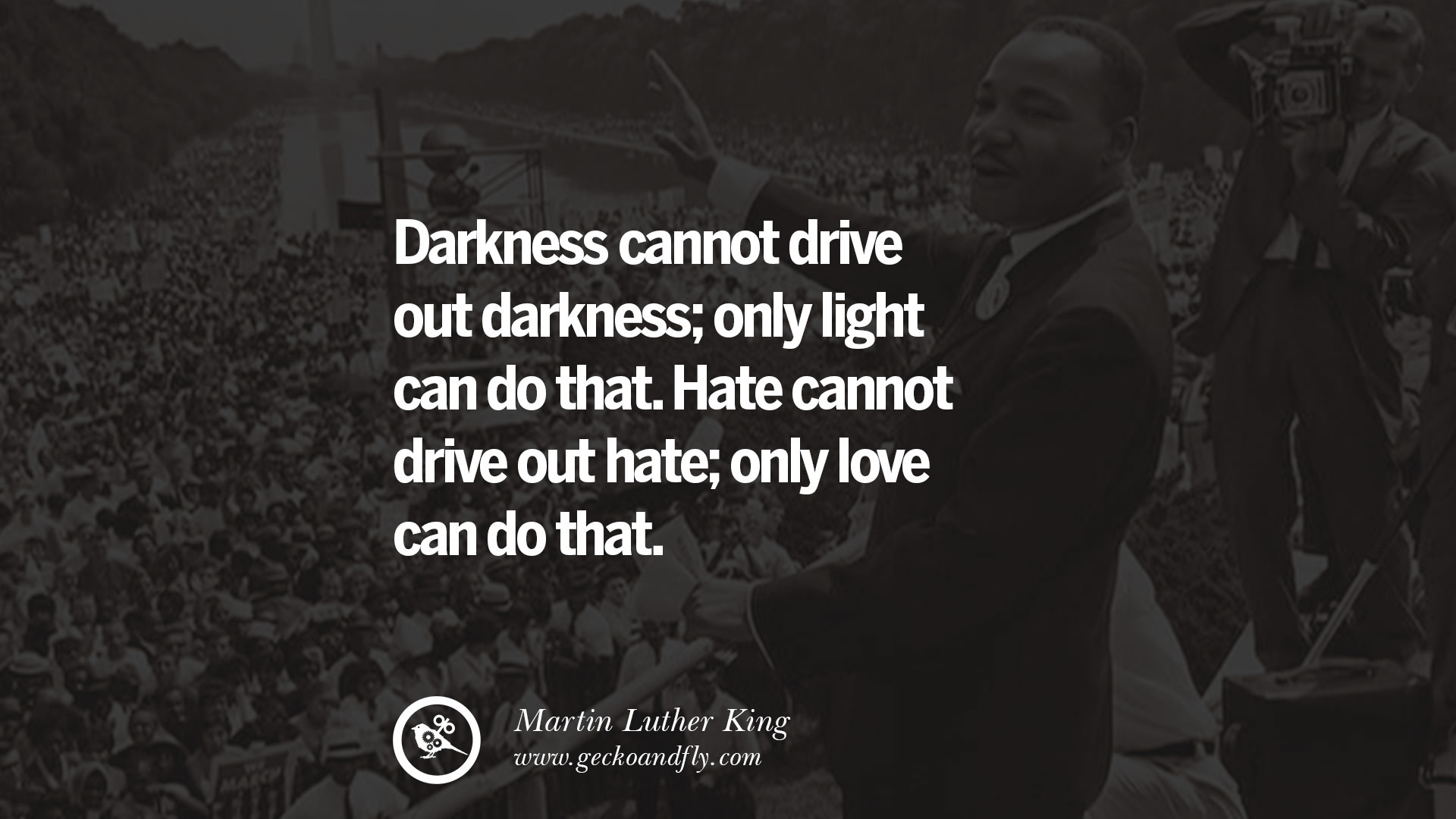
Filed under Current Events, gender issues, sex in society
People Who Admitted They Were Wrong (And Why We Should Respect Them)
/What-Is-Forgiveness-GettyImages-157336807-578654cd3df78c1e1f64dade.jpg)
There’s one sentence that nobody likes saying. Hell, it’s a thought we avoid thinking at all costs. It’s painful, stressful, and downright damaging to our entire understanding of who we are. No, it doesn’t involve distressing phrases like “unfortunate accident,” “slight complication,” or “broken condom.” This incredibly gut-wrenching concept can be boiled down to five simple words.
“I admit I was wrong.”
I’ll give everyone not named Kanye West a moment to stop shuddering. I know. Just reading over that sentence was stressful. I’m only being half-sarcastic here, but I’ve been on the internet long enough and seen one too many comments sections to know the sheer power of those words, if only because they’re so rarely said.
More than ever, we live at a time when nobody wants to admit how wrong they are. It doesn’t even matter, in some cases, when someone is proven wrong beyond any possible doubt. People will still deny it. To make matters worse, a lot of these people tend to be in major positions of power.

There are a lot of things I can say about this phenomenon. Hell, I don’t deny that there have been times when I’ve clung to demonstrably wrong sentiments much longer than I should have.
A lot of it has to do with the flawed wiring of our caveman brains, which I know I constantly belabor on this site. We have this mental picture of who we are in our minds and being wrong is like a stack of dynamite to the foundation. It’s often why people will go to egregiously misguided efforts to protect that mental compilation of who they are.
However, I don’t want to spend too much time belaboring that. I’ll save that for other topics, preferably for a time when our collective faith in humanity is due for its regular gut punch. Instead, I want this post to inspire a sense of hope.
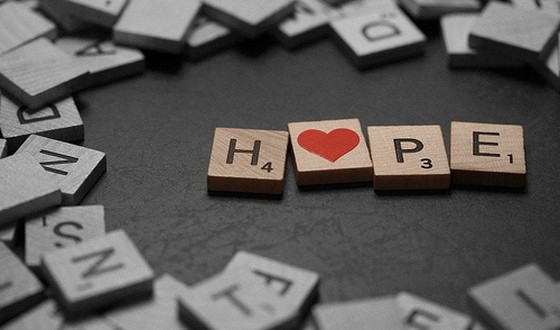
As hard as it may seem, it is possible for people to admit they were wrong. It’s even possible for them to make amends. It’s even possible for some of those people to be celebrities, individuals whose grasp on reality is often tenuous at best. I admit it sounds as impossible in an age where celebrities believe in aliens, chemtrails, and 9/11 conspiracy theories. It does happen though.
Recently, the fine and sexy folks at Cracked.com did a compilation, which they call Pictofacts, of people who undertook the agonizingly difficult task of admitting that they were wrong. Here are some highlights that should give everyone pause, if only to marvel at how any human being can humble themselves in the face of such distress.





These are just a few cases. There are plenty more out there that are every bit as profound. Even so, take a moment to appreciate the breadth of these admissions and the change of heart that these people underwent.
These aren’t just people who watched too much Fox News or listened to their crazy uncles too closely. These are admitted racists, homophobes, bigots, and even a goddamned Neo-Nazi who stood up, admitted they were wrong, and tried to make amends.
It’s impossible to overstate how dramatic this is, from a purely personal standpoint. The inability to admit when we’re wrong is hardwired into us. Making such an admission is akin to resisting the urge to eat when you’re starving or avoid staring at a pair of exposed breasts when you’re horny. It goes against some fundamental forces of biology.

It essentially requires that someone take a baseball bat to the entire foundation of their psyche and rebuild it from scratch. That is not an easy process, nor is it pleasant. It can cost friends, family, reputations, and even careers, as some celebrities like Leah Remini are finding out.
Despite all this, these people still do it. They still do what they understand to be the right and decent thing. It’s not just something that warrants respect. It should be celebrated. Stubbornness isn’t just an unfortunate default setting in our biology. It’s one of those forces that’s getting a lot worse. Anyone who can overcome it in this environment has a strength that not everyone has.
It’s because of that environment that cases like this, where people admit outright that they were wrong, will become more rare. In the age of the internet and social media, it’s too easy to find a group of like-minded people who will reinforce any position, no matter how wrong they are. Why else would flat earth societies still exist?
![]()
That makes acknowledging those who do admit their mistakes all the more important. Now, that’s not to say that everyone should overlook whatever misdeeds they did when they were wrong. As I said in my piece about forgiving sexual misconduct, there are some things that just shouldn’t be overlooked.
Even in the extreme cases, though, it’s important to give people a chance. We need to place faith in people, something I’ve lamented before. We, as a society, need to reward those who endure the agony of admitting that they were wrong. We should keep in mind just how difficult it is for anyone to come to such a realization, especially if they’re a celebrity or someone of major influence.

Admitting that you’re wrong requires strength. It should not be seen as a weakness. At a time when billions of people have access to unlimited information, including half-truths and outright lies, it’s important that people value what is true and just. It’s still a difficult process and our flawed biology will fight us every step of the way. However, that’s exactly why it’s so important.
Why Bigotry And Prejudice Can NEVER Be Resolved (For Now)

It’s all around us. It generates protests, outrage, and angry rants of every variety on cable news. It floods social media, infects college campuses, and drowns out any and all meaningful dialog that might actually lead to productive change. I don’t even have to reveal it at this point. Everybody knows what I’m talking about on some level or they at least have a vaguely accurate idea.
It goes by many names. Call it racism, reverse racism, sexism, man-hating, homophobia, islamophobia, or transphobia. It all falls under the same overly-divisive rhetoric that is bigotry and prejudice. It always seems to be in the news. It always makes a conversation awkward and unsexy. It seems to get better some days and regress the others.
Now I know I’m making everybody’s panties very dry by bringing this up, but bear with me. This post is not going to get as bleak or depressing as it would if it were a Michael Moore documentary. I prefer to convey a more optimistic spirit to my audience. It puts them in a better mood, which is important if you’re trying to sell erotica/romance novels.

On the surface, though, there’s no way around it. This is as ugly a topic as it gets these days, the concepts of bigotry and prejudice. If it isn’t the stereotypical white male patriarchal types bemoaning how lazy and violent minorities are, it’s the radical left-wing hippies who call everyone who doesn’t support interracial gay couples kissing in the streets Nazi supporters.
It really is a strange, distressing state in which we find ourselves in. There used to be just one extreme in terms of prejudice, namely that which tried to preserve the overtly-unequal status quo that favored one particular group, be it white men or one particular religious group. Now, the extremes are all over the place.
I’ve talked about a few of them, like radical feminism. They’re just one of the many extremes that have emerged in recent years, often in conjunction with trends in identity politics. It’s not peace-loving hippies who put flowers in guns anymore. It’s angry, entitled, hashtag-starting narcissists who go into a Hulk-like rage whenever someone dares contest their utopian worldview.

There’s an extreme for women, who want men to suffer for their historical crimes against gender. There’s an extreme for race, some of which favor completely disenfranchising all white men for their historical crimes. There’s even an extreme for those who dare to use the wrong pronouns when describing boys and girls. Yes, it really has gotten that crazy.
That says nothing about the craziness that has emerged from extremes within religious groups, but we’re all kind of used to that. We expect extremes in religion, whether they’re favoring the execution of cartoonists or demanding that their particular religion be given a right to discriminate. It’s just the same bigotry and prejudice, but with holy decrees and a convenient excuse to not pay taxes.
No matter the extreme, the outcome is the same. It divides people. It makes them angry, unruly, and hateful. It makes the comments section in every YouTube video about feminism and race relations a raging tire fire that undermines whatever faith in humanity you might have had at this point.

It’s as frustrating as it is tragic. It often leads us to ask the same question Rodney King once asked. Can’t we all just get along? Well, with all due respect to Mr. King, I’m sorry to say that there’s a wholly valid answer to that question.
Unfortunately, the answer is a definitive no. We cannot.

That’s not the solemn musings of cynical man who has read one too many BuzzFeed articles. It’s a cold, inescapable fact. However, there is a context here and a fluid context, which means we shouldn’t be too cynical. If anything, we should be even more hopeful.
The reason why prejudice and bigotry exist is simple and it has nothing to do with some vast, elaborate conspiracy by cisgendered white heterosexual males. Any conspiracy involving that many straight men probably involves fantasy sports or a “My Little Pony” marathon. Once again, this immutable problem in our society has roots in our biology.
It’s another byproduct of caveman logic. Those same settings in our brains that haven’t been updated in 200,000 years essentially guarantee that there will always be some level of prejudice and bigotry. The fact we’re able to function as well as we do as a global society is nothing short of miraculous.

To understand why this is, you need to recall the circumstances of our distant ancestors. They did not live in big cities full of a diverse mix of people from various cultures and ethnicities. They didn’t even live on farms in rural towns where cow-tipping counts as entertainment. They were hunter/gatherers, roaming and foraging in small, close-knit tribes.
For most of the history of our species, that’s how we lived. As such, that’s how our brains are wired and that wiring has not changed much. Due to the slow, clunky processes within our biology, it really can’t and that’s the crux of the problem.
Modern neuroscience has revealed a great deal about our brain’s capacity to form groups and cooperate. These groups become tribes and we, being the very social species that we are, come to tie our identity to those tribes. We work with them. We trust them. We rely on them. Most importantly, as it pertains to prejudice, we defend them and make endless excuses for them.

Picture, for a moment, how this works in our hunter/gatherer context. You’re an individual living 100,000 years ago. You have only a loin cloth, a spear, and functioning genitals. On your own, you’re not going to survive for very long. In a fight against a hungry lion, you’re basically a walking snack.
Then, you join a tribe. You ally yourself with other people who can help you, share resources, and give you an opportunity to use your genitals with others in a more enjoyable, intimate way. Suddenly, that hungry lion loses its appetite. One human is easy to maul. A hundred humans, each armed with spears and an incentive to impress fertile women, is much harder.
Being in that tribe, you come to rely on them and cherish them. Being around them gives you a sense of purpose and identity. You come to love and respect them. You form your own rituals and quirks. You sing certain songs. You do certain dances. You wear certain loin cloths that you think are stylish as hell. This tribe makes you feel complete.

Then, one day, you encounter another tribe. However, this tribe is not yours. They look different. They talk funny. They believe weird things. They wear weird clothes. They follow different rules. Everything about them is so strange and that freaks you out, so much so that you cling harder to your tribe.
Maybe there’s something about that other tribe that’s scary. Maybe they have weapons that are bigger. Maybe they have talents that your tribe can’t do. Maybe their food tastes better and their gods are more powerful. This is all causing you some serious stress and when your brain gets stressed, it does a lot of crazy things to mitigate it.
The next thing you know, your tribe goes to war with the other tribe. Your tribe loudly proclaims that theirs is the greatest tribe in the world. Their gods are better, their food is better, and their rituals are better. The other tribe is so wrong and misguided that they can’t be human. As such, killing them or demeaning them isn’t a big deal. It’s no more distressing than putting down a rabid dog.
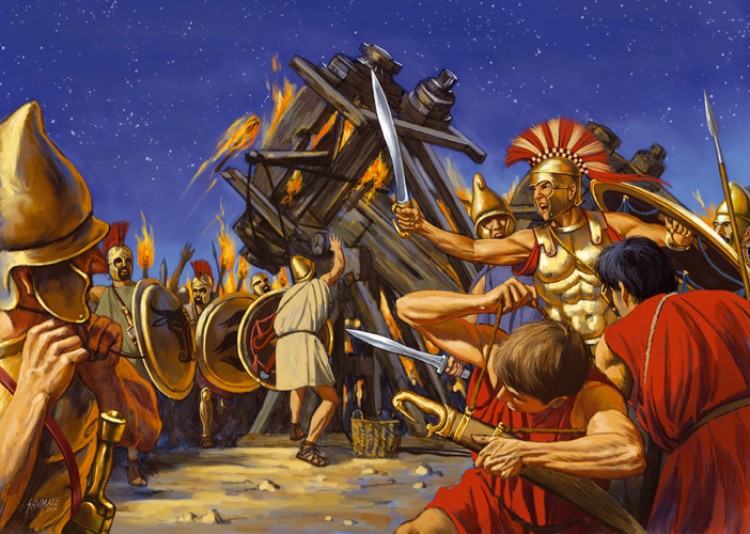
Now, extrapolate this tribal mentality, carry it out a billion times in a billion ways within large multi-cultural societies, and apply the reaction to the comments section of a Justin Bieber video, and you now understand why prejudice and bigotry exists. You also understand why nothing can be done about it for now.
Remember those last two words though. I bolded them for a reason. This is where I offer readers a sliver of hope. Does racism, sexism, and homophobia truly disturb you? Do you wish that our society could move past it and forge a more peaceful existence? Well, you may live to see that day.
Keep in mind, these traits that make us so hateful and divisive all stem from our brains. It’s that flawed wiring that still thinks we’re hunter/gatherers picking nuts out of elephant shit on the African savanna that fosters so much bigotry and prejudice. We humans are capable of a great many technological and intellectual feats, but we cannot circumvent the wiring of our brains.

Thanks to companies like Neuralink and advances in human enhancement, like smart blood, we are very close to finally tweaking those outdated settings that make us mute certain people on Twitter. It may very well happen in our lifetime. We may see a new breed of humans whose brains can function beyond brutish tribalism.
We don’t know how these humans will think, how they’ll function with those still stuck in caveman mode, or how they’ll relate to one another. If they aren’t as hateful or petty as we are today, then perhaps they’ll find creative new ways to relate to one another, connect with one another, and make love to one another.
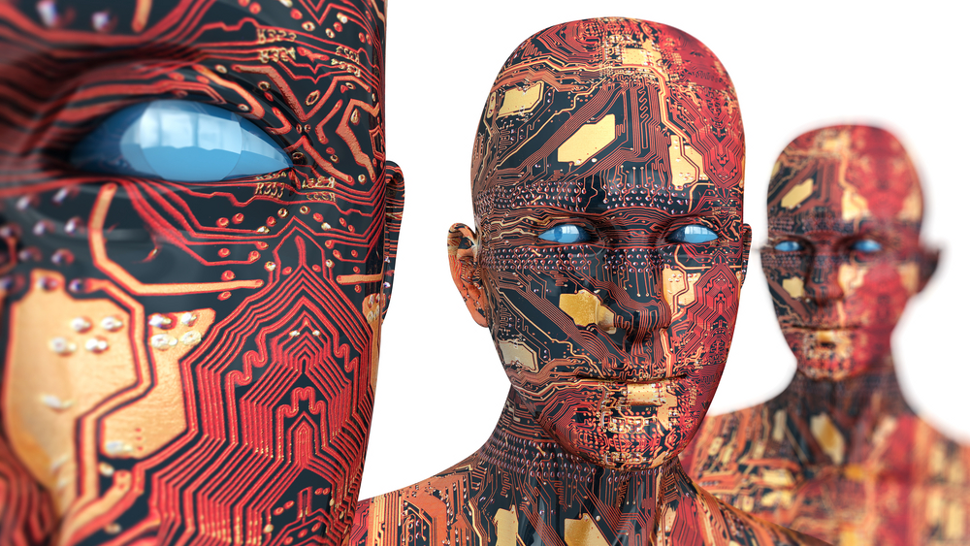
We can only imagine/fantasize for now, but I do take some comfort in the progress we’ve made as a species. We’ve done remarkably well, despite our caveman brains. It’s fun to imagine how much more we can do once we update the software. It may make for a more promising future and some very sexy stories, some of which I intend to write.
Filed under Jack Fisher's Insights
What Lawrence Phillips Taught Me About “Evil”
Every now and then, I come across a story, sometimes fictional and sometimes non-fictional, that resonates with me in an unexpected way. Sometimes it’s a movie. Sometimes it’s a comic book. Sometimes it’s even a video game with a powerful story that actually gets me choked up at the end.
I don’t deny it. I’m human. I may be a heterosexual man, but I do get emotional at times. Sure, I’m not one to cry when Bambi’s mother dies in a Disney movie. Everybody responds differently to certain things. It’s part of what makes us such a diverse species and it’s part of what frustrates every single marketing department that ever lived.
With that in mind, try not to bust my balls too much when I say a recent sports documentary really struck a nerve with me. That alone might not surprise too many people. Sports fans can be an emotional bunch. Just ask any Eagles fan since 1960.
However, this particular documentary involved a guy by the name of Lawrence Phillips. Okay, now try even harder not to bust my balls.
Who is Lawrence Phillips and why should we give a damn? Well, anyone who has followed the NFL or college football over the past 25 years has probably heard his name at least once. He’s not so much an athlete or a football player anymore. He’s become the ultimate cautionary tale. Get football fan talking about him and they’ll usually talk about him with the kind of disdain they usually reserve for bullshit pass interference calls.
To be fair, Phillips earned that disdain in multiple ways. He was an insanely gifted athlete who helped the University of Nebraska go undefeated for two consecutive seasons and win two BCS National Championships in the process. After that, he was drafted 6th overall by the St. Louis Rams in 1996. This is the ultimate dream for a football player and Phillips, despite all his talents, proceeded to piss it all away.
It didn’t happen all at once, but in many ways, that just made it worst. This was a guy who seemed to get arrested every other week and kept finding excuses to beat up women. By the end, he was less respected by the NFL than Scott Norwood is by Buffalo Bills fans. He is now regularly cited as one of the greatest NFL Draft Busts of all time.
Now as a noted NFL fan, I fully admit that I saw Lawrence Phillips in this light. When I follow the NFL and I see someone get into serious legal trouble, a part of me rolls my eyes and things, “At the rate he’s going, he’ll be another Lawrence Phillips.”
That’s what happens when someone becomes a cautionary tale. They become a symbol for the flaws we see in others. As a result, that person ceases to be a person. We don’t even see the person anymore. We just see what he or she represents. It’s harsh, but it’s how we process certain concepts about ourselves.
Then, when we get a chance to actually learn about that person, we find out that just calling them a “cautionary tale” is kind of a dick move because it ignores a much bigger, much more complex picture.
That’s where this documentary comes in. It’s called “Running for His Life: The Lawrence Phillips Story.” Even if you’re not a football fan, I highly recommend this movie. It accomplishes something truly remarkable. It peels back the layers of the cautionary tale that is Lawrence Phillips and reveals the man.
This isn’t a documentary that tries to make excuses. It does not try to glorify Phillips or gloss over his egregious flaws. It just explores the whole of a complicated, volatile, yet gifted man.
It spends a lot of time exploring where he came form and this is important because where we come from has a huge impact on who we are. He was born in Little Rock, Arkansas, but his mother moved him out to California. He was estranged from his father and did not have the best relationship with his biological mother. His home life, to put it mildly, was anything but stable.
The documentary tells stories about the abuse he suffered as a child. It even recounts a story where one of his mother’s boyfriends held him down an urinated on him. Sadly, it gets even more disturbing than that.
After running away from home, Phillips became a ward of the state and bounced around foster homes. Along the way, he lived in a few group homes with other kids. The way the documentary describes this place sounds like something that would make Charles Dickens himself cringe. These are places where things like love and innocence go to die.
Eventually, Phillips did end up in a foster home with a loving mother who tried to help him. However, the damage had been done. The boy had been scarred in ways that never truly healed. The documentary described these scars as demons that he struggled to deal with. A lot of people claim to have demons, but let’s not lie to ourselves. Some are more powerful than others.
Despite these demons, Phillips still had insane God-given talent. The documentary make sit a point to highlight just how talented this man was. By every measure, he had all the physical tools of a gifted athlete. He did try to use those tools as well. Football helped him escape the rough, abusive world he came from. He could’ve been a success story like John Randall or Randy Moss. Unfortunately, that’s not what happened.
The documentary eventually starts to reveal just how dark a turn this man’s life took after college. It described a man who was cold, unloved, and did not know how to show love to others. The women interviewed described a man who just could not control his emotions and when there was upheaval, violence was his first, second, and third reaction.
This fits perfectly with the mold of someone who has an abusive personality. When women’s centers list warning signs, Lawrence Phillips checks most every box. He came from a world of abuse. Naturally, that’s the kind of world he forges around him.
However, the women also took the time to emphasize how good he could be at times. That good cannot and should not be completely ignored. It’s still not an excuse, but it does make clear that this man had other aspects to his personality. He wasn’t just the scary ex-football player who abused women.
This, in my opinion, is the most important message of this documentary. It’s also the most important lesson we can glean from the story of Lawrence Phillips. I’ve talked a lot about evil on this blog. There are plenty of people who would rightly call Phillips evil for the crimes he committed, one of which may have been the murder of his cell mate in prison. However, he was still a human being.
No matter what anyone thinks about Lawrence Phillips, whether he’s a cautionary tale or a violent abuser, it doesn’t change the fact that he was a person. He was a child once. He had a life and he tried to live it. We like to think about evil people as nothing more than monsters. It’s easy to just think of them as wannabe Biff Tannen’s from “Back to the Future.” That still ignores the person and the full story of their lives.
At the end of the documentary, there’s a haunting message about Lawrence Phillips that I think many of us can relate to. It talks of a man who was so physically gifted that he could outrun anybody, but he could not outrun his demons. At one point, an old friend of his said he was always running from his demons, but in the end, the demons caught him.
Whether you’re an aspiring erotica/romance writer, a football fan, or just a decent human being trying to make sense of this crazy world, it’s a message that’s worth hearing. It’s a message we shouldn’t forget. There may very well be another Lawrence Phillips-type story in the future, but let’s not make light of that story. In the end, they’re still people. As soon as we forget that, we cease heeding the lessons of that story.
Filed under Jack Fisher's Insights

